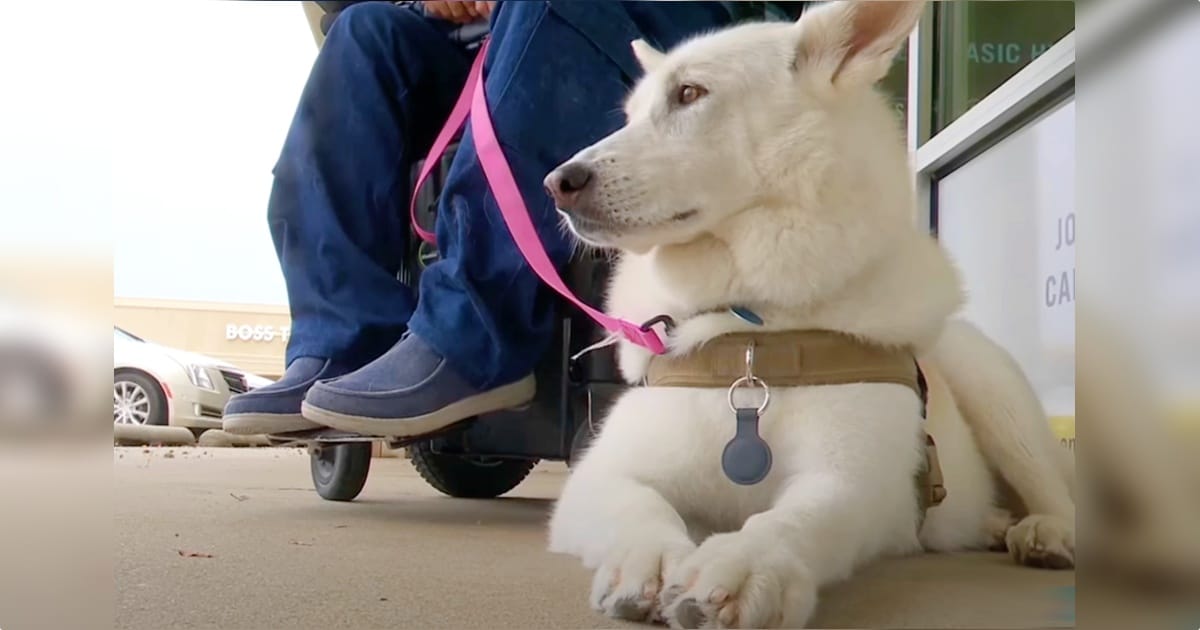Have you ever wondered, can dogs be retarded? While “retarded” is an outdated term in human health, people often use it when questioning whether dogs can have cognitive or developmental issues that affect their behavior. Maybe you’ve noticed your dog has trouble learning new commands, or perhaps they don’t respond to training as quickly as other dogs. These quirks can make you wonder if there’s something deeper going on.
Just like humans, dogs can experience a range of mental and cognitive challenges, from learning disabilities to age-related cognitive decline. In this article, we’ll explore what we know about canine cognition, whether dogs can have mental or developmental delays, and the signs that might indicate a dog is struggling. Understanding your dog’s unique needs can help you offer the best support and care, ensuring they live a happy, fulfilling life.
Understanding Canine Cognition: How Smart Are Dogs, Really?
Dogs are remarkably intelligent creatures, with cognitive abilities that go beyond basic obedience. They learn primarily through association and repetition, which is why positive reinforcement training works so well. Dogs can remember routines and patterns, like when it’s time for a walk or meal, but their memory is mostly associative rather than specific—meaning they’re more likely to remember that a place feels “scary” rather than recall exact details of a past experience.
One of the most impressive aspects of canine intelligence is their emotional sensitivity. Dogs are highly attuned to human emotions, often responding to our moods by comforting us when we’re sad or picking up on subtle cues like our body language and tone of voice. They can also solve simple problems—like retrieving a toy that’s stuck or learning to open doors—and they adapt to new environments based on past experiences. While each dog is unique, these cognitive skills make them extraordinary companions capable of understanding and connecting with us on a deep level.
Can Dogs Have Cognitive or Developmental Delays?
Yes, dogs can experience cognitive or developmental delays, similar to how humans can have intellectual or learning challenges. While it’s less understood in dogs, developmental delays may affect a dog’s ability to learn commands, socialize, or adapt to new situations. These delays can stem from genetic issues, neurological problems, or a lack of proper stimulation during critical development periods.
Signs of Possible Cognitive Challenges in Dogs
Dogs with cognitive or learning difficulties may display certain behaviors that stand out. These can include trouble learning or remembering basic commands, difficulty with house-training, excessive fear or anxiety, poor coordination, and a tendency to be easily confused or disoriented. If your dog seems slower to pick up basic skills or often appears nervous in everyday situations, it may indicate a cognitive challenge.
Common Causes of Cognitive and Behavioral Issues in Dogs
There are several factors that can contribute to cognitive or behavioral issues in dogs. Genetics and inbreeding can increase the risk of developmental delays or behavioral abnormalities, especially in certain breeds. Malnutrition during puppyhood can also affect brain development. Additionally, trauma—such as neglect, abuse, or lack of early socialization—can lead to long-term behavioral issues, as can neurological conditions like epilepsy or age-related canine cognitive dysfunction.
Can Puppies Be Born With Cognitive Impairments?
Yes, some puppies can be born with congenital cognitive impairments. These impairments may result from genetic conditions, prenatal exposure to toxins, or complications during birth. Such puppies may display delayed motor skills, difficulty with socialization, and slower learning rates as they grow. While they can still lead happy lives, these dogs may require extra patience and support to help them thrive.
The Role of Trauma and Environmental Factors in a Dog’s Development
A dog’s early environment plays a huge role in their mental health and behavior. Experiences like abuse, neglect, or a lack of socialization during critical development stages can lead to long-lasting behavioral issues, including anxiety, fearfulness, and aggression. Dogs that have endured trauma may be more reactive or struggle with trust, and often need extra care and patience to feel safe and secure.
How to Support a Dog With Cognitive Challenges
Helping a dog with cognitive challenges requires patience and a consistent routine. Structured environments, gentle training, and positive reinforcement can make learning easier for them. Specialized training methods, like breaking commands into smaller steps, can also help, as well as using cues and routines to reduce confusion. Providing a calm, supportive atmosphere will make a big difference in their day-to-day life.
The Difference Between Quirky Behavior and Cognitive Impairment
Not every odd or unique behavior signals a cognitive problem—sometimes, it’s just personality! Some dogs are naturally more aloof, clumsy, or independent, and that doesn’t mean they have a cognitive impairment. However, if a dog consistently struggles with basic tasks, training, or socialization, it may be worth exploring further to see if there’s an underlying issue.
Are There Medical Diagnoses for Canine Cognitive Issues?
Yes, veterinarians can evaluate cognitive issues in dogs through a combination of observation, neurological exams, and sometimes cognitive tests. They may assess the dog’s behavior, reactions, and problem-solving abilities, and rule out other medical conditions that could affect behavior, such as thyroid issues or vision problems.
The Role of Veterinary Support and When to Seek Help
If your dog shows persistent signs of cognitive challenges or behavior issues that impact their quality of life, consulting a veterinarian or veterinary behaviorist is a good idea. They can help determine if there’s an underlying medical condition and provide guidance on behavioral support, training strategies, or therapies that could help.
Therapies and Treatments for Dogs With Cognitive or Developmental Issues
There are several options to support dogs with cognitive or developmental challenges. Behavioral therapy, often with a professional trainer or behaviorist, can help them learn coping skills. In some cases, medications or supplements may improve cognitive function or reduce anxiety. Mental enrichment activities, like puzzle toys and scent work, can also stimulate their minds and improve their quality of life.
How to Help Your Dog Thrive Despite Cognitive Challenges
Creating a structured, positive environment can greatly enhance a dog’s well-being. Stick to consistent routines, offer plenty of praise and rewards, and be patient with them. Enrichment activities, regular exercise, and gentle socialization can help keep them engaged and happy, allowing them to live a fulfilling life even with cognitive challenges.



















 English (US) ·
English (US) ·